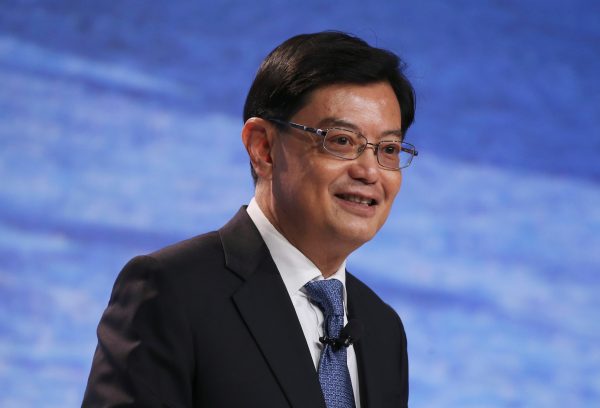Heng gained entry to top universities via Singapore’s opaque government scholarship system. He then held senior positions in both the civil service and the Cabinet. His record of achievement, however, reflects hard work and competence rather than political flare or initiative. He is a poor public speaker and, fairly or not, is burdened with a ‘geeky’ technocratic image. Topping it off, he suffered a massive stroke during a cabinet meeting in 2016 from which he only recovered through extreme medical intervention. Yet, he has the great advantage of being very close to the Lee family, having been principal private secretary to former prime minister Lee Kuan Yew for three years.
At age 58, Heng fits the profile of a stopgap appointment intended to keep the seat warm, bringing to mind many suggestions over the previous year that Lee’s son Li Hongyi is being groomed. 2019 was the year in which Heng set out to show that he was more than the colourless technocrat who everyone overlooked — that he was a political fighter, leader, speaker, planner, thinker and natural prime minister-in-waiting. The opportunity to prove himself arose on 1 May when both of Singapore’s deputy prime ministers — Tharman Shanmugaratnam and Teo Chee Hean — stepped down to give Heng a clear run as the sole deputy prime minister — the first time since 1995 that Singapore has managed with just one person in that role.
Unfortunately, Heng’s move to centre stage proved disastrous and exposed an unexpected flaw: he is incapable of thinking on his feet — highlighted by two recent episodes.
On 5 November, Prime Minister Lee gave Heng a starring role in Parliament in leading the government’s ritualised attack on two opposition MPs over their management of a town council. This should not have been a big ask given Heng has been a cabinet minister and MP since 2011. Yet the task proved beyond Heng, who fumbled with his notes and his own argument. Most worrying for a prime-minister-in-waiting, Lee could be seen and heard coaching him through the session.
Heng lost all semblance of control of his own stage when one of the targeted opposition MPs — the Workers’ Party’s Sylvia Lim — gently suggested that Heng’s motion was ‘premature’ because matters were still before the courts. It seems that Heng had not considered this line of defence and called for an adjournment so he could hold ‘consultations’ to decide how to respond. After recess, Heng passed the microphone to a more junior colleague who handled the attack much better than Heng.
Less spectacularly, Heng was the guest in a public question and answer session on 1 October that was held as part of the Singapore Bicentennial Conference hosted by the Institute of Policy Studies. As often happens, it opened with a series of friendly pre-arranged questions from the chair before turning to the audience for input. But the unusual feature on this occasion was the frequency with which Heng looked to the clipboard in his lap while answering the pre-arranged questions. This was another subpar performance in what has emerged as a much broader pattern of disappointing efforts.
Heng has performed adequately in senior cabinet roles so he must be credited with technocratic competence and considered a ‘safe pair of hands’. But the role of prime minister is much more political than technocratic and leaves less room to hide. Prime Minister Lee has made it known that he would like to step down by 2022 at the latest after having already pushed the date back from 2019 or 2020. Heng’s now obvious limitations must be raising doubts about the wisdom of putting him in the top job, even if it is only for a short time.
There are better candidates than Heng among his contemporaries but the current front-runner — retired general Chan Chun Seng — is only 50 years old, making him far too young to be in contention if the Prime Minister is looking for a stopgap.
Heng’s shortcomings do not put the ruling People’s Action Party (PAP) in any danger of losing the next election that could be called anytime between now and April 2021. It does, however, raise the question of whether Lee will be able to carry through with his own retirement schedule without further delay.
Michael Barr is Associate Professor in International Relations in the College of Business, Government and Law, Flinders University. He is a Fellow of the Australian Academy of the Humanities and Associate Editor of Asian Studies Review.
This article is part of an EAF special feature series on 2019 in review and the year ahead.

